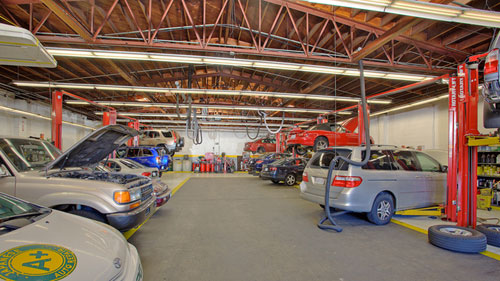Japanese Auto Repair: Understanding the Unique Needs of Your Vehicle
Japanese cars, including renowned brands like Toyota, Honda, Nissan, Subaru, and Mazda, have earned a global reputation for their reliability, longevity, and efficiency. These vehicles are designed to perform well for many years, often surpassing the 200,000-mile mark with proper care. However, like any car, Japanese vehicles require regular maintenance and timely repairs to keep them running smoothly. Understanding the unique needs of your Japanese car is crucial for ensuring its longevity and optimal performance.

One of the key factors that set japanese auto repair apart is their precision engineering. Japanese automakers prioritize durability and efficiency, often using high-quality materials and innovative technologies to build their vehicles. As a result, many Japanese cars are known for their long-lasting performance, even under challenging driving conditions. However, to get the most out of your vehicle, it’s essential to maintain it properly and address any issues promptly.
Routine maintenance is a cornerstone of Japanese auto repair. Regular oil changes, brake inspections, tire rotations, and fluid checks are necessary to keep the engine running efficiently. Japanese vehicles are designed with advanced engines that require clean oil to reduce friction and prevent overheating. Ignoring oil changes or neglecting to monitor fluid levels can lead to engine damage, reduced fuel efficiency, and costly repairs. Routine brake inspections are also important, as the braking system plays a vital role in the safety and performance of your vehicle.
Japanese cars are also known for their excellent fuel efficiency. This is largely due to the well-engineered engines and transmission systems that maximize fuel economy. However, to maintain this efficiency, it’s essential to keep the engine and fuel system in good working order. This means replacing air filters, fuel filters, and spark plugs as needed. If any of these components become clogged or worn, it can negatively impact fuel efficiency, leading to higher operating costs. Regular inspections and replacements of these parts are a smart way to keep your vehicle running at its best.
Another important aspect of Japanese auto repair is the suspension system. Japanese cars are designed to provide a smooth, comfortable ride while maintaining responsive handling. Over time, suspension components such as shocks, struts, and bushings can wear out, leading to a decrease in ride quality and handling performance. If you notice that your car is bouncing excessively, making strange noises, or struggling to maintain stability on the road, it’s time to have the suspension checked and repaired.
Japanese vehicles also tend to have advanced electrical systems, particularly in modern models. The electrical system controls everything from the engine management system to the air conditioning, entertainment, and safety features. If your car’s electrical system is malfunctioning, it can lead to a wide range of issues, such as warning lights on the dashboard, difficulty starting the engine, or failure of certain features. Diagnosing electrical issues requires specialized knowledge and equipment, making it essential to seek a professional repair service for these problems.
Additionally, while Japanese cars are built to last, they are not immune to wear and tear. Common issues that may require repair include worn-out timing belts, radiator problems, and issues with the transmission. If a timing belt breaks, it can lead to severe engine damage, so it’s crucial to replace it at the recommended intervals. Overheating is another common issue in older vehicles, often caused by problems with the radiator, hoses, or thermostat. Regularly inspecting the cooling system can prevent overheating and extend the life of your engine.
When it comes to Japanese auto repair, choosing a specialized service center is important. While general auto repair shops may be able to perform basic maintenance, a technician with experience working on Japanese vehicles will have a deeper understanding of the specific needs of these cars. They will also have access to genuine parts that are designed for your vehicle, ensuring that the repairs are done right and maintain the integrity of your car.
In conclusion, Japanese auto repair is about understanding the unique needs of these vehicles and addressing them with care and expertise. Regular maintenance, prompt attention to issues, and the use of high-quality parts are essential for ensuring the longevity and performance of your Japanese car. By investing in proper repair and maintenance, you can continue to enjoy the reliability, efficiency, and driving pleasure that these vehicles are known for.